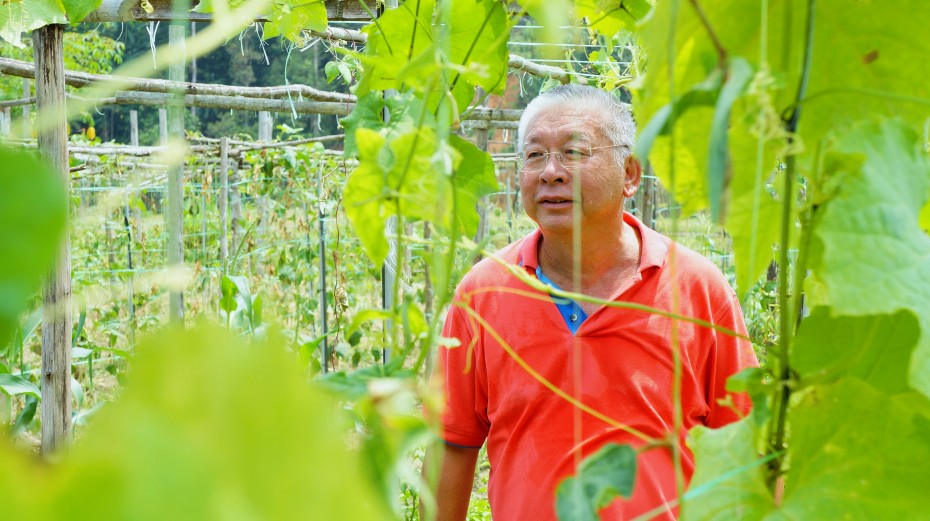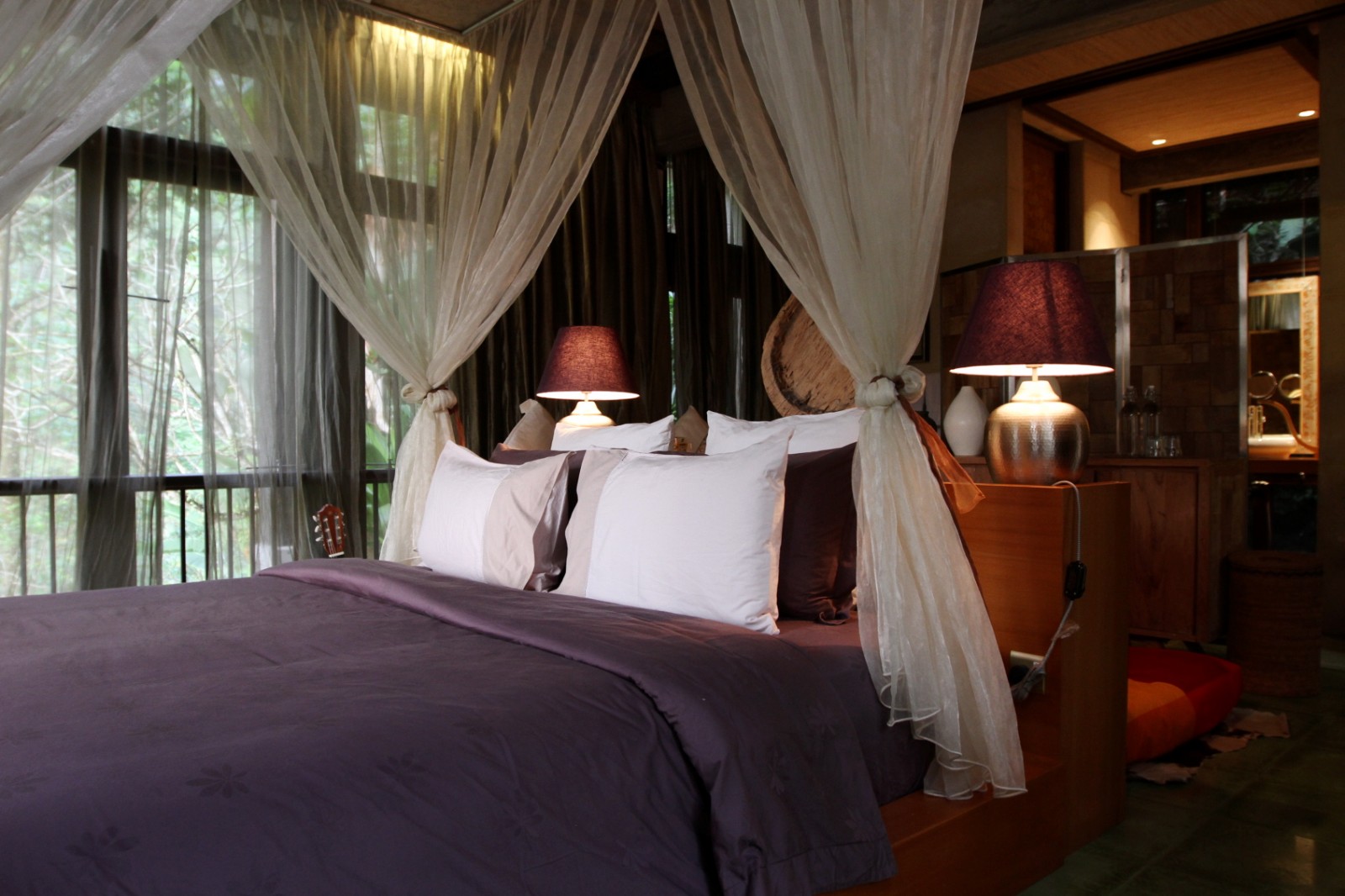By #TEAMMAYLEE
brats@thestar.com.my
THE founder of Casabrina Vacation Villas, Felix Tee, has created a green, semi self-sustaining luxury getaway in the lush jungle of Raub, Pahang.
“We are part of the environment, so why are we destroying it?” asked Tee, whose calm, zen-like demeanour makes it hard to believe he owns a successful manufacturing business and was once a “drug addict” – reliant on pharmaceutical drugs to help with his hypertension.
In an attempt to give back to Mother Nature, the 61-year-old has invested over a decade’s worth of time and money to make Casabrina eco-friendly, and ensure it doesn’t leave a large carbon footprint.
It starts with the most basic of human needs: water.
The mineral-rich water used in this resort comes from the Kenong River and is filtered through a membrane, making it safe to drink.
Absolutely no chlorine is used, keeping the water safe for both humans and the inhabitants of the jungle surrounding Casabrina.
The resort tries to minimise its water usage as much as possible, including taking steps like encouraging guests to take short showers and doing less laundry, when possible.
The resort’s own vegetable and fish farms, located just outside the resort, are key to its self-sustenance.
Most of Casabrina’s food supply comes from those farms, where everything is grown pesticide and chemical-free.
Casabrina’s fish farm uses modern aeration systems and premium fish food to ensure maximum quality and taste.
That’s how they have super fresh tilapia and catfish delivered every day at Casabrina!
As for vegetables, Felix and his team are experimenting with a makeshift greenhouse to enable the healthy growth of highland vegetables in the lowlands.
The greenhouse reduces the temperature of the interior, creating an ideal environment for growth.

Felix Tee, owner of Casabrina Vacation Villas, believes that it’s important to learn to live with nature, and be as eco-friendly as possible.
If this experiment proves successful, Felix hopes to plant more vegetables in the lowlands and not have to depend so much on external sources such as Cameron Highlands, which is further away and would increase their carbon footprint.
But all these steps to preserve the environment and create a healthy haven for his guests naturally leads to extra cost, though Tee believes it is all worth it.
“Without health, you’re nothing,” he said.
It looks as though the relaxed, healthy lifestyle that Casabrina promotes is working because in spite of his previous health problems, Tee looked in good shape, following the BRATs on their tour of his resort, farms and factory.
The resort’s self-sustaining practices even extend to the decorations and furniture, which are self-sourced.
The Balinese-inspired wood decorations are custom-made in a factory that Tee rented, allowing Casabrina to use every piece of wood to its fullest potential.
The cut tree trunks are fully used in its cylindrical state, minimising the wastage that would happen if they were cut into, say, rectangles.
“All these resources are at our doorstep, except nobody wants to use them,” said Tee, who is obviously passionate about environmental issues.
He doesn’t use chemical fertilisers on his farm but uses chip wood and sawdust instead to create a humus that nurtures the plants.
His love for the ecosystem doesn’t just stop there.
In Casabrina, wildlife like snakes and wild boars are also protected and will be released back into the wild if found on the grounds.
“We are the passersby and they are the residents,” said Tee.
“We are living in their home.”
However, while Tee has been very enthusiastic about the benefits of being eco-friendly, not everybody feels the same.
This lack of public interest in the eco-tourism industry may have been one of the reasons he couldn’t get a bank loan or investment for Casabrina.
Even his own family tried to discourage him from pursuing his dream.
Undeterred, he has pushed on to make Casabrina one of the most luxurious green resorts in Malaysia (fun fact: the name Casabrina comes from the Spanish word for “house”, casa, and his daughter’s name – Sabrina).
“This industry offers long-term benefits,” he said, comparing eco-friendly and “conventional” tourism. “It does not offer immediate gratification.”














Tell us what you think!